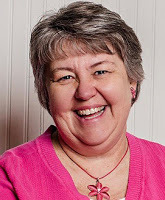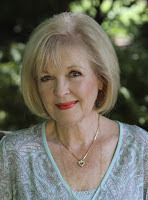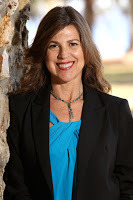Edie Melson's Blog, page 184
October 23, 2020
Don’t Forget this Most-important Conference Tip

by Lori Hatcher @LoriHatcher2
If you plan to attend a writers conference this fall (Florida Christian Writers Conference is happening RIGHT NOW) and Blue Ridge Mountains Christian Writers Conference is only a month away, you’ve probably prepared your proposals, pitches, and personal appointments. Be sure, however, not to forget the most important “P” of all—prayer. Prayer paves the way for our writing projects, acknowledges God’s sovereignty over the results of our efforts, and brings peace to our anxious hearts. Please, please don’t attend a writers conference without bathing your efforts in prayer.
As you prepare for your next conference, consider these five prayer prompts:
1. Pray for divine appointments. Proverbs 16:9 reminds us, “A man's heart plans his way, But the LORD directs his steps.” As I prepare for a conference and study the faculty list, I ask God to help me know with whom I should request meetings. I acknowledge I need His help to secure the appointments. If their schedule fills up before I can sign up, I ask Him to provide other chances to meet with a particular person. Finally, I ask Him to help me connect with like-minded writers with whom I can share encouragement and support.
2. Pray for eyes to see where God is at work and courage to come alongside Him. Jesus, in John 5:17, told his disciples His Father is always working. God is not only present at the conference, He’s active at the conference. As we pray for eyes to see where He’s at work, our spiritual senses heighten, and we become less likely to miss His presence. When we see that writer sitting alone at the lunch table, we realize she may be the new friend God brought to the conference so we can cross paths. When we hear that call for submissions in a genre we’ve been intrigued by but haven’t yet dabbled in, we recognize a chance for our next publishing credit.
3. Pray for God’s will to be done.One of my favorite passages of Scripture records a conversation between God and Moses as Moses prepared to lead the Israelites into the Promised Land. As much as Moses wanted the Israelites to live free in their own country, he wanted something more. He wanted to know they were in the center of God’s will, not lagging behind or running ahead. Moses said to God, “If Your Presence does not go with us, do not bring us up from here,” (Exodus 33:15). I pray this often for my writing journey. “Lord, if this invitation, opportunity, or contract isn’t your will for me, I don’t want to go there. Lead me in your paths. Open the doors you want me to walk through, close those that I shouldn’t, and give me the insight to know the difference.”
4. Pray for supernatural wisdom.The publishing world is confusing. Navigating the superhighway of agents, editors, and publishers takes more than a Global Positioning System (GPS). It takes a God-given Positioning System (GGPS). James 1:5 shows us where to find the knowledge we need to travel the publishing road: “If any of you lacks wisdom, let him ask of God, who gives to all liberally and without reproach, and it will be given to him.” Before, during, and after each conference, ask God to provide wisdom, insight, clarity, and discernment.
5. Pray for faith to trust God’s sovereignty.Most conferences I’ve attended feel like a hybrid of pleasure and pain, of dreams realized and dreams dashed. Without the comforting embrace of God’s sovereignty, I could easily feel as though everything depends on me. If my one sheet is perfect, I’ll secure an invitation to submit. If I flawlessly execute my elevator pitch, I’ll attract an agent. Knowing God’s plans are never thwarted (Job 42:2) brings me valuable perspective. Knowing He will fulfill His purpose for me (Psalm 138:8) frees me to do my best and trust God for the results.
Whether you attend a conference in person or virtually, be sure to refine your proposals, practice your pitches, and secure your personal appointments. Above all, pray for God’s gracious hand to guide and bless your writing journey.
TWEETABLEDon't Forget this Most-important Writing Conference Tip - @LoriHatcher2 on @EdieMelson (Click to Tweet)
 Lori Hatcher loves God even more than she loves chocolate—and that’s a lot. Since He rescued her at age 18, she’s been on a relentless journey to know and love Him more. Her deepest desire is for her reader friends to join her on the journey. As an author, blogger, and women’s ministry speaker, she writes for Our Daily Bread, Guideposts, Revive Our Hearts, and Crosswalk.com. She’s written three devotional books, including Refresh Your Faith, Uncommon Devotions from Every Book of the Bible, and Hungry for God…Starving for Time, Five-Minute Devotions for Busy Women. Connect with her at LoriHatcher.com or on Facebook, Twitter (@lorihatcher2) or Pinterest (Hungry for God).
Lori Hatcher loves God even more than she loves chocolate—and that’s a lot. Since He rescued her at age 18, she’s been on a relentless journey to know and love Him more. Her deepest desire is for her reader friends to join her on the journey. As an author, blogger, and women’s ministry speaker, she writes for Our Daily Bread, Guideposts, Revive Our Hearts, and Crosswalk.com. She’s written three devotional books, including Refresh Your Faith, Uncommon Devotions from Every Book of the Bible, and Hungry for God…Starving for Time, Five-Minute Devotions for Busy Women. Connect with her at LoriHatcher.com or on Facebook, Twitter (@lorihatcher2) or Pinterest (Hungry for God).
Published on October 23, 2020 08:42
October 21, 2020
How Will Your Hero Die?

by Henry McLaughlin @RiverBendSagas
Today I want to discuss how to add more depth and suspense to our stories. It doesn’t matter what genre you write; this title question applies to all of them.The question of my hero dying rose in me as I was reading a detective novel recently. The protagonist was a female private investigator. Her character was believable and complex. The plot held interesting twists and turns. Throughout the second and third acts, the detective faced physical death several times. But she was never in any danger of physically dying. Nothing in the writing told me this. The cover of the book gave it away. Under the title were the words, “first in the (detective’s name) series.” There will be other books, so it’s highly unlikely she will die in book one. Sure enough, she didn’t. Her facing death in book one didn’t have the tension and suspense it should have.
When I started writing, one of the first lessons I learned was don’t give away the ending. I thought it meant as we told the story. And it does. It can also happen on the front cover too.
This experience reminded me of something I first heard from James Scott Bell. He teaches our hero needs to face death in the story, ideally at the climax. Physical death is obvious. Bell also teaches about professional and psychological death. I would add emotional and spiritual death.
In his Harry Bosch novels, Michael Connelly has Harry face physical danger with the potential for death. But even more often, Harry faces professional death—he could lose his job as a detective for the Los Angeles Police Department. This is a death Harry faces in almost every book in the series. Harry also faces emotional death because his dedication to his work stresses his relationships with his wife, his daughter, and his partners.
In my first book, Journey to Riverbend, my hero Michael Archer faces physical death. At the climax, he faces spiritual death because to achieve his goal and save a man’s life; he has to kill someone to do it. The question at the climax is which will he choose.
Writing instructors and books on the craft tell us to give our heroes meaningful stakes to strive for. This will keep the reader engaged as he or she roots for our characters. What is more meaningful than life or death? Not just of the body, but the heart and mind and soul as well?
As you work on your story, look for ways your hero can face some form of death. Whether you’re writing romance or young adult, science fiction or fantasy, middle grade or spy novels, ask yourself, how can I raise the stakes by having death raise its ugly head at the crucial moment in the story? Even Terry Pratchett in his humorous fantasies has his characters face death in some form. What type of death best fits my genre, my story, and my characters?
Happy writing.
TWEETABLEHow will the Hero of Your Novel Die? - Henry McLaughlin, @RiverBendSagas on @EdieMelson (Click to Tweet)
 Henry’s debut novel, Journey to Riverbend, won the 2009 Operation First Novel contest.
Henry’s debut novel, Journey to Riverbend, won the 2009 Operation First Novel contest.Henry edits novels, leads critique groups, and teaches at conferences and workshops. He enjoys mentoring and coaching individual writers.
Connect with Henry on his BLOG, TWITTER and FACEBOOK.
Published on October 21, 2020 22:00
October 20, 2020
7 Tips for Crafting Fantastic Blog Posts

by Katy Kauffman @KatyKauffman28
Don’t panic. This may sound daunting—make each blog post as good as a book. What I mean is, does it have a main idea that gives the whole post value? Does it have an intriguing beginning and a powerful ending? Do the paragraphs stay on track and share just enough detail to make your point? Is the takeaway presented in such a way that it will affect the mind and heart of the reader? Is it as good as a book?The comforting thing is that many blog posts are short—normally 500-800 words. Their shortness made me think a long time ago that maybe they were “lesser” writing. (How wrong I was!) Although it was challenging to craft a blog post good enough to use, I felt that articles and books were further up on the hierarchy of importance in the publishing world. Plus, I didn’t think that many people were following me. I wanted to encourage others, but how were people going to find my blog in the thousands of Christian blogs online?
The Day that Blog Posts Got an Upgrade
I realized the value of blog posts when a kind friend asked me to write for her blog. She had been reading my blog (to my surprise), and she asked me to contribute to hers. She helped me to know that what I was writing was reaching an audience. Blog posts received an upgrade on my priority list that day.
Although books and magazines are the published materials we find on Amazon, blog posts help us get there. How is an editor going to know that our writing has quality? How are readers going to discover who we are, what we write about, and how we craft our messages? How can an agent tell if we’re serious about writing? Blogs matter. And even those weekly blog posts can end up on Amazon author pages. A nifty feature links an author page to the author’s blog, allowing previews of posts to appear on the page for all to see. (Including how often we post.)
Another Valuable Priority
It’s not just the hope of a book contract that can motivate us to blog—it’s the people who will read our words. A book can take twelve months or more to be published. A blog post can take a few minutes. Through our blogs we have instant access to readers and their hearts and minds. This form of quick “publishing” should motivate us to work hard on making each blog post full of insight, personality, and take away.
7 Tips to Implement
Include some of the following key ingredients to craft blog posts that grab the reader’s attention, reveal your personality, share a structured message, and touch the reader’s heart and mind.
Give your blog post a killer title. Pick a unique phrase from your lead-in to be the title, or use numbers. People love seven tips to do this or five steps to do that. Think practical. Start your blog post with a gripping first line. Make your post stand out by writing a first line that uses vivid nouns and verbs. If you’re starting with a story, leave out some vital information in the first line so the reader moves to the second line to see how the story progresses. Share relevant stories from the heart. As you share a story that relates to your takeaway, recall how you felt through the struggle, surprise, or challenge. Include some of your responses to a problem, and then share how God helped you through it. Readers may think, “I’ve been there, too.” Think “devotion” or “article,” not “diary.” Streamline your paragraphs to eliminate unnecessary details that distract from your main point instead of building to it. Some bloggers may use their sites as an online journal, but if your purpose is to encourage your readers, each post needs application for the readers’ daily lives and less of a “diary” feel.Don’t write “stiff.” Write as if you are talking to a friend, and use what sparkles in your personality (humor, encouragement, punch, or the right amount of “mischief”). If you have written “from the heart,” go back and see if your post follows a hidden outline. If it doesn’t, tweak the wording and paragraphs to keep your flow of thought traveling in a straight line. If you always write from an outline, make sure the post has a flowing “melody” to your mind’s ear. If it has a staccato one, adjust the transitions between paragraphs to enhance the “music”—the flow—of your writing. End with a bang—takeaway that the reader will treasure, put into practice, or ponder for days to come. Have you come to see the value of every blog post you write? What are your goals as you blog? Share them in the comments below, and join the conversation!
TWEETABLE7 Tips for Crafting Fantastic Blog Posts - @KatyKauffman28 on @EdieMelson (Click to Tweet)
 Katy Kauffman is an award-winning author, an editor of REFRESH BIBLE STUDY MAGAZINE, and a co-founder of LIGHTHOUSE BIBLE STUDIES. She loves connecting with writers and working alongside them in compilations, such as Feed Your Soul with the Word of God, Collection 1 which is a 2020 Selah Awards finalist. She recently started THE LIGHTHOUSE CONNECTION, a monthly writers’ newsletter including writing tips, inspiration to write, and news of submission opportunities.
Katy Kauffman is an award-winning author, an editor of REFRESH BIBLE STUDY MAGAZINE, and a co-founder of LIGHTHOUSE BIBLE STUDIES. She loves connecting with writers and working alongside them in compilations, such as Feed Your Soul with the Word of God, Collection 1 which is a 2020 Selah Awards finalist. She recently started THE LIGHTHOUSE CONNECTION, a monthly writers’ newsletter including writing tips, inspiration to write, and news of submission opportunities. In addition to online magazines, Katy’s writing can be found at CBN.com, thoughts-about-God.com, and three blogs on writing. She loves to spend time with family and friends, take acrylic painting classes online, and do yard work in the morning sun. Connect with her at her blog, WINNING THE VICTORY, and on FACEBOOK and TWITTER.
Published on October 20, 2020 22:00
October 19, 2020
Writing About Painful Times

by Lucinda Secrest McDowell @LucindaSMcDowel
“Let the redeemed of the Lord tell their story.” Psalm 107.1-2
“I was crushed, so crushed I didn’t even want to face the public. And yet, I didn’t have a choice…”
Carol was a professional speaker who was used to sharing her story.Until that day her only son was arrested for murder. While reeling from the unimaginable crime that would change all their lives forever, Carol knew she had to speak to a large crowd that weekend—people unaware of the recent event.
“So I gave my message of hope based on biblical truth that I had always known to be true. When I began it was the most empowering thing I had ever experienced because I suddenly realized in the middle of speaking truth, that in the dark shadows of my mind I was probably questioning, but I had that sense, as I spoke from God’s Word, of stomping on the head of the enemy, saying ‘You loser. You meant to wipe the parents out with the son, and you lose!’ And it gave me the courage to do it again and again.”
Is God calling you, as one of “the redeemed,” to share your own unique story?
Even if the story is a hard one—one that you would rather keep hidden.
“God is able to take the mess of our past and turn it into a message. He takes the trials and tests and turns them into a testimony.” (Christine Caine)
New York Times bestselling author Ann Voskamp found that writing her second book was even harder than telling the story of the first book. “It was slower because I was afraid. After ‘One Thousand Gifts,’ I bear scars and wounds, so I wrote slower, tried to be more careful. Not very brave sometimes, paralyzed a lot of times. [But] Christ is in the broken and hurting places where it looks like all ashes.”
Both Carol and Ann have discovered that if you speak to a world in pain you will always have an audience.
“When we share our stories, we give people around us an opportunity to speak of their own unexpected challenges. We develop a bond with others and a risk-free environment for people to say ‘This is what happened to me.’ And God can use those times to bring about much good. I’ve discovered the benefits of telling our story far outweigh the liabilities, if we can just find the courage to move forward,” says Carol Kent, who invests in teaching speakers.
Long ago, Jill Briscoe shared this prayer with me and some other young speakers; I still use it today: “Give my words wings, Lord. May they alight gently on the branches of men’s minds, bending them to the winds of Your will. May they fly high enough to touch the lofty, low enough to breathe the breath of sweet encouragement upon the downcast soul.”
I plan to spend the rest of my life investing in helping others share their stories through writing and speaking and passing down a legacy of faith and fortitude. The way we do this may not look the same, but the desire is there. To respond to all God has done for us, in us and through us, by sharing our story. Not when the struggles are over, not when everything is all resolved and tied up with a bright ribbon. But now, in the midst of the trusting.
Be authentic and redemptive. Share your story with someone soon.
TWEETABLEWriting About Painful Times - @LucindaSMcDowel on @EdieMelson (Click to Tweet)
 Lucinda Secrest McDowell, M.T.S., is a storyteller and seasoned mentor who engages both heart and mind while “Helping You Choose a Life of Serenity & Strength.” A graduate of Gordon-Conwell Theological Seminary and Furman University, McDowell is the author of 15 books and contributing author to 30+ books. Her award-winning books include Soul Strong, Life-Giving Choices, Dwelling Places, and Ordinary Graces. Lucinda, a member of the Redbud Writers Guild and AWSA, received Mt. Hermon “Writer of the Year” award and guest blogs monthly for ‘The Write Conversation.’
Lucinda Secrest McDowell, M.T.S., is a storyteller and seasoned mentor who engages both heart and mind while “Helping You Choose a Life of Serenity & Strength.” A graduate of Gordon-Conwell Theological Seminary and Furman University, McDowell is the author of 15 books and contributing author to 30+ books. Her award-winning books include Soul Strong, Life-Giving Choices, Dwelling Places, and Ordinary Graces. Lucinda, a member of the Redbud Writers Guild and AWSA, received Mt. Hermon “Writer of the Year” award and guest blogs monthly for ‘The Write Conversation.’ Whether coaching writers and speakers, pouring into young mamas, or leading a restorative day of prayer, she is energized by investing in people of all ages. As a communications teacher, she has served on the faculty of Speak Up Conference, Mount Hermon Christian Writers Conference, Blue Ridge Mountains Christian Writers Conference, Florida Christian Writers Conference, Asheville Christian Writers Conference and co-directs the annual spiritual retreat reNEW – retreat for New England Writing & Speaking. Known for her ability to convey deep truth in practical and winsome ways, McDowell shares words from “Sunnyside” cottage in New England and blogs weekly at www.LucindaSecrestMcDowell.com
Published on October 19, 2020 22:00
October 18, 2020
Getting the Most Out of Online Networking

by Karen Whiting @KarenHWhiting
Networking can help us promote books in the long run, but it is first about developing relationships and not merely pitching your ideas or products. It begins with listening and learning about the other person. Listening shows you value the person, so try to listen more and talk less. With a good network connection both individuals benefit. That means considering what you have to offer and asking questions to learn from the other person. Keep in mind goals of networking should include meeting new people, enjoying people, finding similar interests and passions, and blessing others by helping them.Before networking, know what value you bring to connections. New writers are readers and can offer to review books, join author focus groups, and share posts on their social media. Experienced writers can offer critique help, be sounding boards for ideas, and provide encouragement. Understand that as you listen to people you might become a bridge to connecting two people you know who would be great for helping one another. If so, offer to introduce them. Your willingness and genuine interest in helping others will bring rewards in time. Also know what you would like to know or what opportunities you hope to find in case someone asks how they could be of service.
Be prepared to follow through. Set up an email to connect people who want to meet, make notes to continue following and commenting on someone’s post, blog, or podcast. Do promised reviews. All of these steps will help strengthen connections. You’ll discover when you help others that doors will also open for you without any pushing on your part. Never dismiss anyone as being unimportant. We all have value and connections. At my first big writer’s conference I made friends with an unpublished author who later opened doors for me that led to several book contracts.
Social Network Connections
On social media it can be great to connect with editors and successful authors. Make the most of those opportunities with a little research. Check out the websites of the people and the publishing houses. Then think of what you’d love to learn from them and post it as a question. That can start a conversation. Continue to build the relationship with comments when the individual posts and other questions. Check out where they speak or teach to see if you can meet up in person. One author I know has had several celebrities endorse his books because of his social network relationships with them.
Podcasts, Book Reviews, and Workshops
Check out podcasts on topics you write about and follow it as well as the friending the host. Be sure to post comments and engage in conversations. When you have a book out on the topic, or an article, let the host know and pitch being a guest.
Review a book you’ve read and let the author know you did that and where it’s posted. That can also open doors to relationships and discovering more about techniques and style you like about the author’s writing. That can blossom into a relationship.
Take an online class from an author or writing professional you admire. Engage with the teacher and see if part of the class includes a critique of your work. That can provide personal help to strengthen your writing and also lead to endorsements.
Business Card Networking
Pull out business cards you collected or stored on your computer. These are generally people you met in person. Hopefully you noted where and when you met. Choose a few to email. Pray for the person and ask how things are going. That can create stronger network connections. I did this after a few conferences and one connection led to a book contract when that person recommended me to his editor after he learned the editor needed someone who wrote family-based materials. For other writers, this has led to online critique partnerships.
Choose a few people from your card list to follow regularly that include someone you can learn from, someone you can exchanges ideas with, and someone you can encourage or mentor. These help you in different ways to stretch you, teach you, partner with you on your journey, and to give back from what you’ve learned.
Online Conference Network Opportunities
If you attend an online conference, save names of individuals who impress you and look them up. If you belong to the organization sponsoring the event, you can probably find those individuals in a directory and connect online to build a relationship. Email those people with a positive comment about enjoying the workshop or their input to start a conversation. If some of the teachers offer opportunities to pitch, take advantage by submitting your ideas. If the workshop is recorded, you can listen again to add more to anyone on with whom you want to connect. If you see a name but no contact, check the organization running it or look on your social media to find the person.
The mutual benefits of networking make it valuable for your business. The friendships developed make it priceless.
TWEETABLEGetting the Most Out of Online Networking - @KarenHWhiting on @EdieMelson (Click to Tweet)
 Karen Whiting (www.karenwhiting.com) is an international speaker, former television host of Puppets on Parade, certified writing and marketing coach, and award-winning author of twenty-six books for women, children, and families. Her newest book, 52 Weekly Devotions for Families Called to Serve, uses stories, activities, and chat prompts to help families develop servant hearts and foster strong bonds in families who have members serving the community, nation, or world.
Karen Whiting (www.karenwhiting.com) is an international speaker, former television host of Puppets on Parade, certified writing and marketing coach, and award-winning author of twenty-six books for women, children, and families. Her newest book, 52 Weekly Devotions for Families Called to Serve, uses stories, activities, and chat prompts to help families develop servant hearts and foster strong bonds in families who have members serving the community, nation, or world.She has a heart to grow tomorrow’s wholesome families today. She has written more than seven hundred articles for more than sixty publications and loves to let creativity splash over the pages of what she writes. She writes for Leading Hearts and Crosswalk.com. Connect with Karen on Twitter @KarenHWhiting, Pinterest KarenWhiting, and FB KarenHWhiting
Published on October 18, 2020 22:00
October 17, 2020
Your Written Words Matter

by Tammy Karasek @TickledPinkTam
We often hear we’re to walk in obedience if we believe God has called us to write. I don’t think anyone of us would dispute that fact. But in various times during our writing path, we may have self-doubt, lose confidence in our ability or wonder if we misunderstood the nudge back when we started down this road.This year has been a year personally that all of the above popped through my mind off and on throughout the year. I’ve talked to writer friends who’ve felt the same way, too. This year has brought much to think about and a lot of extra time to pause and reflect on various changes that have come our way this year in our lives. Possibly changes that should have been made anyway.
I’ve heard various comments of feeling lost, confused and that there’s nothing we can do. But I’d like to throw out a suggestion to that last statement. Instead of choosing to not do anything or not try, how about you do what you can do?
Great advice, right? But, like what?
As a writer, we are positioned in a perfect time to share the hope of Jesus. People have more time to read. More are searching for answers and suggestions. Like Queen Esther says in one on my favorite verses in the Bible:
“And who knows whether you have not come to the kingdom for such a time as this?” Esther 4:14 ESV
God has placed us where He wants us to work at building His kingdom and doesn’t owe us an explanation. We don’t have to like what’s happening, but we have the choice of what we’ll do with our situation. We can sit and pout in our chair or we can work with what we have.
I believe we are called as writers for such a time as this. This year—right now—is the perfect time for us, writing from a Christian worldview, to be sharing the good news of the gospel in every way we can in anything we write. Whether we’re writing blog posts, articles, or books, now is a great time to share truth with whoever will read our words. When we pen the words given to us from God, we can have the confidence He will put them in front of whoever He wants to see them. We need only to trust His timing.
There are so many hurting people around us due to the many changes and circumstances of this year that need encouragement and hope. As writers and believers, we have the ability to share both with them. We can write those words to be published in various sources. Those sources can be the obvious of books, blog posts and articles, but let’s not forget the handwritten notes, emails and social media posts, too. We might not be able to walk door to door and share, but we can certainly reach far and wide with our written pieces to be found by someone searching for hope. Someone may be searching for an answer to a question that you’ve written about. Another may be encouraged to push through a rough patch in their life where you’ve shared actionable steps to keep on, keeping on.
Writer friends, these next couple of months will be hard for so many this year. Holidays usually bring their own problems of sadness, depression, split families, loneliness and more. This year may be harder for so many reasons.
I’d like to encourage you to pick up your pens, or turn on that computer, and share the love of Christ to those around you. Don’t worry about whom the piece is for, write it. Share it where you can. Be someone who shares the gospel to toss some light in our dimly lit present world. Don’t think your single light won’t matter, it will.
Close your eyes and imagine this. You’re up in the space station. You sort of see this itty-bitty candle flame flicker—it’s one writer’s words. You look away, then glance down again and there are more little blips of light coming from all over the earth. No big deal, so you move away from the window. Your curiosity gets to you, and you have to come back to glance back down to earth. Each of those single flames representing one writer who boldly sent their words out to the world, has now blended with the other writers’ flames and covered the earth with a vibrant light from all over that huge ball.
So you think you can’t do anything? I say do what you can with your calling.
Your words matter.
TWEETABLEYour Written Words Matter - @TickledPinkTam on @EdieMelson (Click to Tweet)
 You’ll find Tammy seeing humor and causing laughter in every aspect of life. Her past, filled with bullying and criticism from family, is the driving force of her passion to always encourage others and give them The Reason to smile. She’s been married to her college sweetheart, Larry, for 37 years, a mom to their grown daughter, Kristen, and wrapped around the paw of a little dog named Hattie. Born and raised in Ohio, her family now resides in South Carolina. She is the President of Word Weavers Upstate SC, member of ACFW and My Book Therapy/Novel Academy. She’s the Blog Editor for Word Weavers International. A Conference Assistant for Blue Ridge Christian Writers Conference. A monthly contributor for The Write Conversation. A contributor in the 2018 Divine Moments Compilation Book—Cool-inary Moments. Also a regular contributor to several other blogs.
You’ll find Tammy seeing humor and causing laughter in every aspect of life. Her past, filled with bullying and criticism from family, is the driving force of her passion to always encourage others and give them The Reason to smile. She’s been married to her college sweetheart, Larry, for 37 years, a mom to their grown daughter, Kristen, and wrapped around the paw of a little dog named Hattie. Born and raised in Ohio, her family now resides in South Carolina. She is the President of Word Weavers Upstate SC, member of ACFW and My Book Therapy/Novel Academy. She’s the Blog Editor for Word Weavers International. A Conference Assistant for Blue Ridge Christian Writers Conference. A monthly contributor for The Write Conversation. A contributor in the 2018 Divine Moments Compilation Book—Cool-inary Moments. Also a regular contributor to several other blogs. Connect with Tammy: Blog: HTTP://WWW.TAMMYKARASEK.COM Email: tickledpinktammy@gmail.com
Published on October 17, 2020 22:00
October 16, 2020
Jumpstart Your Writing With Poetry

by Emme Gannon @GannonEmme
The late Pat Conroy tells us in his book, My Reading Life, that he began each writing day with a poem that would, “unloose the avalanche of words inside me, that secret ore that, once polished, will sit before me disguised as the earth’s jewelry.” Just reading Mr. Conroy’s description creates a desire to unlock the secrets that pour from the poet’s soul—secrets of the heart that have the power to break through that undiscovered place inside of us and release words and feelings that have been yearning to be heard.
Poetry is the language of the heart, often a story of the evolution of change in the soul of the poet. One of my favorite poems is Sonnets From The Portuguese by Elizabeth Barrett Browning (1806-1861.) Her forty-four sonnets focus on her love for her husband, Robert Browning.
Elizabeth was a sickly woman who believed she would never marry and who was surprised by the love of Robert Browning. In the beginning of the poem, she expresses her feelings of despair as she lives with the belief that she will not live a long and happy life because of her ill health. She laments that she is not deserving of so great a love as Robert. The poem soon shifts from despair to euphoria as she allows herself to be embraced by Robert’s love and the realization that, as a child of God, she is worthy of his love. The force of this revelation flows through her being, thus revolutionizing her feelings of unworthiness to that of a worthy recipient. By the end of the sonnet, she is captured by love—a love so deep that the force of it embraces her with such intensity that thoughts of love, not death, becomes her constant companion.
Elizabeth wrote the poem as a gift for her husband. His nickname for her was “The Portuguese,” hence the title. She begins Sonnet I by looking back to the ancient Greek poet Theocritus, noting that poems were sung, not recited. She then offers her heart in this, the first of her sonnets:
I thought once how Theocritus had sungOf the sweet years, the dear and wished-for years,Who each one in a gracious hand appearsTo bear a gift for mortals, old or young;And, as I mused it in his antique tongue,I saw, in gradual vision through my tears,The sweet, sad years, the melancholy years,Those of my own life, who by turns had flungA shadow across me. Straightway I was ‘ware,So weeping, how a mystic Shape did moveBehind me, and drew me backward by the hair;And a voice said in mastery, while I strove,‘Guess now who holds thee?’—‘Death,’ I said, But, thereThe silver answer rang, ‘Not Death, but Love.’
By Sonnet 43, Elizabeth’s words had crescendoed into one of the world’s most famous and beloved sonnets:
How do I love thee? Let me count the ways.I love thee to the depth and breadth and heightMy soul can reach, when feeling out of sightFor the ends of Being and ideal Grace.I love thee to the level of everyday’sMost quiet need, by sun and candle-light.I love thee freely, as men strive for Right;I love thee purely, as they turn from Praise.I love thee with the passion put to useIn my old griefs, and with my childhood’s faith.I love thee with a love I seemed to loseWith my lost saints, I love thee with the breath,Smiles, tears, of all my life! And, if God choose,I shall but love thee better after death.
The passion of her heart was exposed and passed on, first to her beloved husband, and then to the world. She looked deep into her hurting soul, saw God, and then was able to love with such intensity because He became the filter through which she interpreted love. Oh, the beauty such words hold—beauty that has the potential to attach itself to each of us.
The late Pat Conroy referred to poetry as jewels that he would use to jumpstart his writing. An apt description, for as we sit alone at our writing desk, the poet’s words heighten our sense of wonder—that strange and wonderful emotion that catapults our senses and creates perfect jewels that have the ability to release hidden words and bring a deeper dimension to our writing.
Elizabeth ends her sonnets with these words:
Instruct thine eyes to keep their colors true.And tell thy soul their roots are left in mine.
It’s as if she is challenging us to see truth in poetry and let its beauty dig deep so as to reveal what is waiting to be discovered.
TWEETABLEJumpstart Your Writing with Poetry - @GannonEmme on @EdieMelson (Click to Tweet)
 Emme Gannon is a wife, mother, and grandmother who loves to write stories that stir the heart. Her award-winning writing has appeared in Focus on the Family magazine, several anthologies, and numerous newsletters. She just completed her first novel.
Emme Gannon is a wife, mother, and grandmother who loves to write stories that stir the heart. Her award-winning writing has appeared in Focus on the Family magazine, several anthologies, and numerous newsletters. She just completed her first novel.
Published on October 16, 2020 22:00
October 15, 2020
I Could Have Written That!

by Crystal Bowman
My first big break in publishing came in the mid 1990’s. I received a contract to write a beginning reader series for Zondervan. The first contract was for four books, followed by another contract for four more. With one contract I went from a self-published author of humorous poems, to a children’s author with a major publishing house. Those were the days before publishers’ websites and online ordering, so the CBA Convention was a mega event. The show lasted for almost a week and the exhibit halls were so massive that you could not see everything in one day.
The first time I attended a CBA Convention, I was in awe of the size of the Christian publishing industry and honored to be part of it. As my husband and I explored the exhibit halls, examining the latest titles, I picked up a children’s book titled The Rhyme Bible. It was well-written and beautifully illustrated. But instead of celebrating a wonderful new product, I had a lump in my throat. I showed it to my husband and said, “I could have written that!”
I shared my frustration with my editor and asked if she thought I should go ahead and write a Bible storybook in rhyme—after all, no one owns a genre. She gave me the green light and so I dove in headfirst, my fingers fluttering over the keyboard faster than a hummingbird’s wings. I knocked out the story of creation, Adam and Eve, Cain and Able, and was working on Noah. And just for fun (which revealed my less than righteous attitude) I referred to it as The Better Rhyme Bible.
As I was creating the story of Noah and the Ark, I smiled as I wrote about the cows going moo, the owls hooting who, and a duck going quack with feathers on his back. And then I heard this voice somewhere inside my head. “If I wanted you to write The Rhyme Bible, your name would be on the cover.” My fingers froze on the keyboard. I realized that my motive for writing this book was not to honor God, but to prove that I am as good as another author. How could I expect God to bless that?
I called my editor and told her I had changed my mind about writing the Bible storybook. She said she was about to tell me they were not going to offer me a contract and dreaded delivering the news. We both decided it was not meant to be.
Shortly after that, Zondervan offered me a contract to write a new collection of humorous poems for kids. I said yes and wrote a book titled If Peas Could Taste Like Candy. In the years that followed I wrote children’s books for several different companies. Some of my books were in rhyme, and some were not. In 2006, I met Cindy Kenny, who at the time was a writer and editor for Veggie Tales. We put our two blonde heads together and wrote a proposal for My Read and Rhyme Bible Storybook. It was a Bible storybook in rhyme written for beginning readers. Tyndale House offered us a contract and it had a good shelf life for more than a decade.
Throughout my 25+ years of writing and publishing, I have seen many children’s books that I could have written, and I have written many books that other authors could have written. I have learned to accept each contract I receive as a gift. I have also learned to celebrate with my author friends when they have new releases. And if God wants my name on a cover, it will be there.
TWEETABLEI Could Have Written That! - Crystal Bowman on @EdieMelson (Click to Tweet)
 Crystal Bowman is an award-winning, bestselling author of more than 100 books for children and four nonfiction books for women. She also writes lyrics for children’s piano music and is a monthly contributor to Clubhouse Jr. Magazine. She loves going to schools to teach kids about poetry. She also speaks at MOPS (Mothers of Preschoolers) groups and teaches workshops at writers’ conferences. When she is not writing or speaking, she enjoys going for walks, working out at the gym, and eating ice cream. She and her husband live in Michigan and have seven huggable grandkids.
Crystal Bowman is an award-winning, bestselling author of more than 100 books for children and four nonfiction books for women. She also writes lyrics for children’s piano music and is a monthly contributor to Clubhouse Jr. Magazine. She loves going to schools to teach kids about poetry. She also speaks at MOPS (Mothers of Preschoolers) groups and teaches workshops at writers’ conferences. When she is not writing or speaking, she enjoys going for walks, working out at the gym, and eating ice cream. She and her husband live in Michigan and have seven huggable grandkids. WWW.CRYSTALBOWMAN.COMWWW.FACEBOOK.COM/CRYSTAL.BOWMANWWW.FACEBOOK.COM/CRYSTALJBOWMANwww.Instagram.com/crystalbowmanauthor
Published on October 15, 2020 22:00
October 14, 2020
Tips to Boost Holiday Book Sales

by Susan U. Neal RN, MBA, MHS @SusanNealYoga
It is that time of year again. The holidays are right around the corner. Books are an affordable gift that last. November is one of the best months to publicize for holiday book sales. So brainstorm and determine what book bundles you can create. Do you have a course, digital products, coaching, and e-books that can be sent directly to your customer? Create a virtual bundle by combining these products. I use BookFunnel.com to send my eBooks directly to my customer because the book link that is included cannot be shared with anyone else.
For print books, offer to autograph the book. Do you have another physical gift you could bundle with it? Many authors have created jewelry, scripture cards, CDs, etc. Or you could purchase an item that corresponds with your book. Offer to gift wrap it and ship it directly to the person receiving the Christmas gift. Of course you would need to add your time to the price of your book bundle. But think of how you are saving the buyer the headache of wrapping and shipping the gift. Be sure to use the less-expensive media mail postage option when shipping books.
When pricing these gifts, include a discount and promote the savings in your advertising. If you are shipping the gift, have the sale end the first week in December. You don’t want to get stuck in a long line trying to ship an item. However, you can continue selling and promoting the virtual gifts through Christmas and even into the new year as an after-Christmas sale.
After you’ve determined your gift bundles: Create corresponding memes for social media. Include Christmas gift hashtags when posting. Notify your email subscriber list about your holiday bundles. You should heavily promote your holiday gifts in November. If you have pop-ups on your website, you could create a holiday gift bundle pop up.
The holiday season is the perfect time to set up a book signing. Are any bookstores located within an hour of your home? Contact them and see if they are hosting book signings. November and December are busy months for bookstores. Up to 40 percent of books are sold during the months of November through January.
Sign up for local holiday festivals and Christmas bazaars. Individuals who attend these events are looking for gift ideas. Your book or product may be what they’re looking for. Take advantage of the high shopping demand during the holiday season when up to 20 percent of all retail sales occur.
Start brainstorming to prepare for selling your holiday gift bundles in early November. Create your social media memes and emails for your subscriber list to start promoting your gift ideas. Check out my holiday bundles in my shop at https://susanuneal.com/shop.
TWEETABLETips to Boost Holiday Book Sales - @SusanNealYoga on @EdieMelson (Click to Tweet)
 Susan U. Neal, RN, MBA, MHSSusan’s mission is to improve the health of the body of Christ. She has her RN and MBA degrees, as well as a master’s in health science. She is a CERTIFIED HEALTH AND WELLNESS COACH with the American Association of Christian Counselors. She published five books, the Selah award winner 7 STEPS TO GET OFF SUGAR AND CARBOHYDRATES, CHRISTIAN STUDY GUIDE FOR 7 STEPS TO GET OFF SUGAR AND CARBOHYDRATES, HEALTHY LIVING JOURNAL, SCRIPTURE YOGA a #1 Amazon best-selling yoga book, and YOGA FOR BEGINNERS which ranked #3. She published two sets of Christian Yoga Card Decks and two Christian Yoga DVDs that are available at CHRISTINAYOGA.COM. Her digital product HOW TO PREVENT, IMPROVE, AND REVERSE ALZHEIMER’S AND DEMENTIA is a great resource. To learn more about Susan visit her website SUSANUNEAL.COM You can also connect with Susan on FACEBOOK, TWITTER, and INSTAGRAM.
Susan U. Neal, RN, MBA, MHSSusan’s mission is to improve the health of the body of Christ. She has her RN and MBA degrees, as well as a master’s in health science. She is a CERTIFIED HEALTH AND WELLNESS COACH with the American Association of Christian Counselors. She published five books, the Selah award winner 7 STEPS TO GET OFF SUGAR AND CARBOHYDRATES, CHRISTIAN STUDY GUIDE FOR 7 STEPS TO GET OFF SUGAR AND CARBOHYDRATES, HEALTHY LIVING JOURNAL, SCRIPTURE YOGA a #1 Amazon best-selling yoga book, and YOGA FOR BEGINNERS which ranked #3. She published two sets of Christian Yoga Card Decks and two Christian Yoga DVDs that are available at CHRISTINAYOGA.COM. Her digital product HOW TO PREVENT, IMPROVE, AND REVERSE ALZHEIMER’S AND DEMENTIA is a great resource. To learn more about Susan visit her website SUSANUNEAL.COM You can also connect with Susan on FACEBOOK, TWITTER, and INSTAGRAM.
Published on October 14, 2020 22:00
October 13, 2020
Writing During a Pandemic—Staying In & Reaching Out

by Linda Gilden @LindaGilden
When the pandemic first began and we were told to stay in, it seemed to be the perfect scenario for writers. Don’t go anywhere just sit at home and write. Not only did that create focused time like never before but it also gave us opportunities to write new subjects and find new markets. I have found that during this time of writing at home, I am writing more than ever. You may wonder at a time when most businesses are suffering to keep their heads above water, how are writers finding new work and building new relationships with others in the industry? If you are one of those who want the answer to that question, let me make a few suggestions.
Look around you.Have you exhausted all the subjects in your home? Walk in the door and pretend you have never been there before. Are there collections? The origin of your collection or the reason you like to collect may make a great article for a hobby or collector’s magazine. Is the house full of books indicating that you are an avid reader. Perhaps you would like to try writing book reviews. Do you like to cook? You could write a book about pandemic cooking when you can’t go to the store as often as you could before. Do you have pets? Pet magazines would love an article about caring for pets or maybe a specific breed of pets. Do you live on a farm? How is that beneficial during a pandemic? Would it benefits those who live outside of city limits to have a few chickens in the backyard?Look within you.Does another article you read in a magazine bring up a question? You are probably not the only one who needs answers.In your morning Bible study, you discovered a new verse. Should you write an expository article about that verse?You finally started reading a book that has been in your “to read” pile. Does that prompt you to research the setting of the book or find a new occupation you want to know more about?Have you overcome a personal difficulty lately? Others may be struggling with the same thing. Give them encouragement and share the answers you have found.Look out to others.As you read articles, reach out to publications that have publications you have enjoyed. Compliment the editor on the choice of material. If you have an idea that will work for a specific market, pitch it to the editor. Magazines need good writers, even in a pandemic.During your prayer time, if God reveals truth to you, share it with others. His message may be for someone you can reach with your words.Network with other writers. Maybe join a new writers group.Encourage those around you. Even though many writers are staying at home and still working, it can be a lonely time. Just a note or phone call means a lot to your peers.Don’t let the pandemic be a time you look back on with regret. People need to hear from you, pandemic or not. You have good news that needs to be shared. Recognize the opportunities that exist during these unprecedented times. Write articles that can change lives one reader at a time.
TWEETABLEWriting During a Pandemic—Staying In & Reaching Out - tips from @LindaGilden on @EdieMelson (Click to Tweet)
 Linda Gilden is an award-winning writer, speaker, editor, certified writing and speaking coach, and personality consultant. Linda is the author of 19 books and over 1000 magazine articles. She enjoys every meeting with editors and knowing we are all part of the same team. Linda’s favorite activity (other than eating folded potato chips) is floating in a pool with a good book surrounded by splashing grandchildren—a great source of writing material! www.lindagilden.com
Linda Gilden is an award-winning writer, speaker, editor, certified writing and speaking coach, and personality consultant. Linda is the author of 19 books and over 1000 magazine articles. She enjoys every meeting with editors and knowing we are all part of the same team. Linda’s favorite activity (other than eating folded potato chips) is floating in a pool with a good book surrounded by splashing grandchildren—a great source of writing material! www.lindagilden.com
Published on October 13, 2020 22:00



